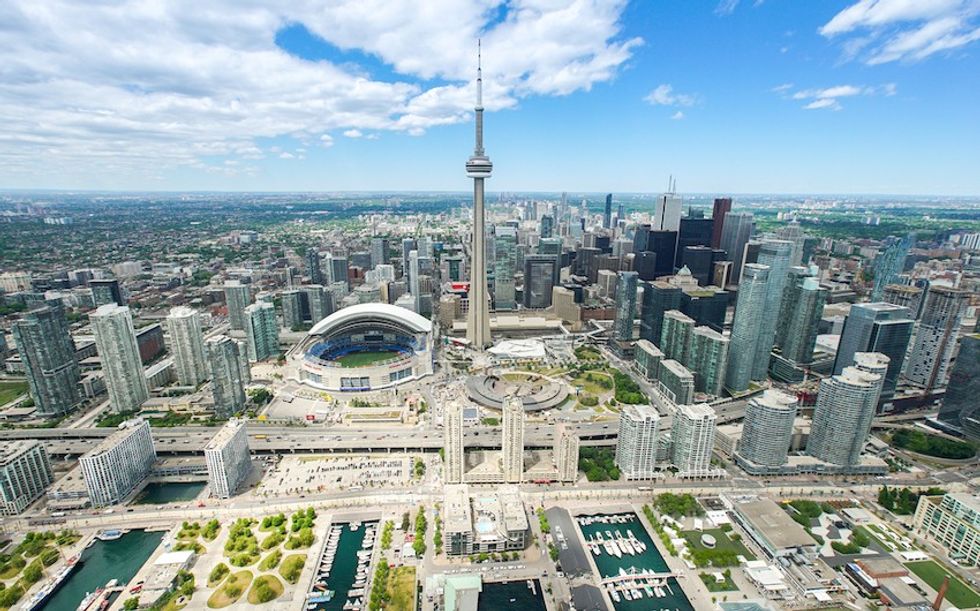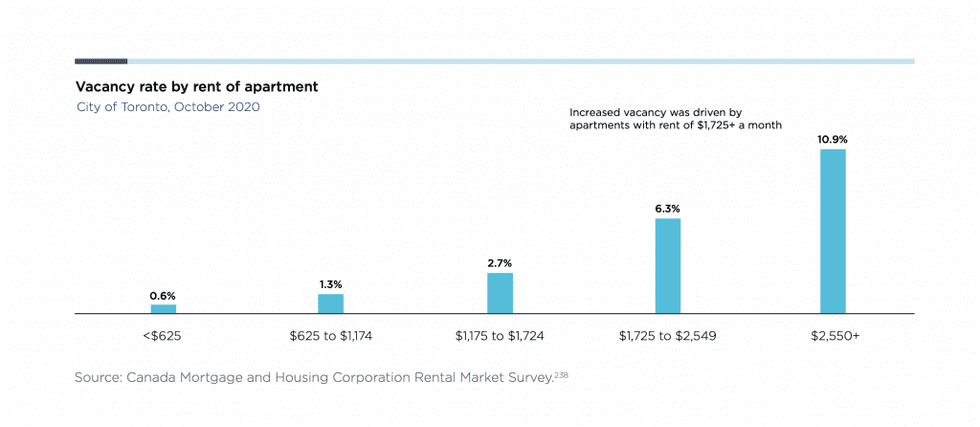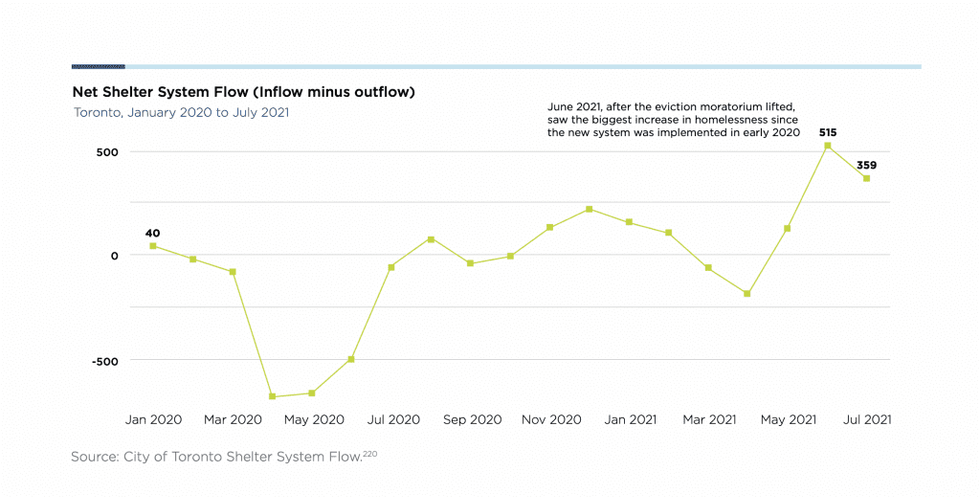The Toronto Foundation just released their Toronto's Vital Signs Report.
And, frankly, it’s nothing to be proud of on the housing front.
The in-depth and broadly cited report tracks 10 quality of life issue areas and amplifies the voices of sector leaders.
One of the most resonating findings of the fresh Toronto Vital Signs Report is that the pandemic has pushed inequality to an all-time high -- especially in the housing department. Toronto has one of the most unaffordable housing markets in the world and a relentless homeless problem that’s only getting worse.

“Canadians’ net worth has grown by $1.8 trillion – the highest increase ever,” reads the report. “But about 95% of growth has gone to homeowners, while many younger and racialized residents struggle with the rising cost of living.”
An alarming amount of people can no longer afford to live in Toronto. “One in four Torontonians is now struggling to make ends meet,” reads the report. “That’s 650,000 people – or 140,000 more people since 2018.”
Not that anyone needs the reminder, but real estate prices have climbed to defeating heights in recent years. “The explosion of housing prices combined with stagnant incomes and low availability of affordable units point to serious concerns for rising housing precarity,” reads the report.
READ: Every Single Housing Type Became Less Affordable in Canada’s Major Markets in Q2
Since the mid-2000s, Toronto home prices have increased by 213%. For those looking to enter the housing market, the reality is grim. Toronto has become one of the most expensive housing markets in the world for local residents. “The pace at which unaffordability is growing in Toronto is also staggering," reads the report. In 2018, on a long list of cities compiled by Urban Reform Institute and the Frontier Centre for Public Policy, Toronto was ranked the 21st most expensive. In just three years, it is now the fifth most expensive. Ouch.
In the rental market, the rent of vacant units has shot up by 93% since the mid-2000s. While rent prices dropped for a hot second in response to the pandemic, they are now well on their way to reaching pre-COVID figures. More alarmingly, there are virtually no deeply affordable rental units on the market for Toronto’s lower-income residents.
"According to the Canadian Mortgage and Housing Corporation (CMHC), renters in the bottom 20% of the income distribution can afford only one in 500 (0.2%) of the rental units on the market in Toronto as of October 2020, which means there are essentially no units that are considered affordable for those at the bottom of the income distribution," reads the report.
Frankly, that’s unacceptable.
With the pandemic, the situation has gone from bad to worse. In October 2020, 11% of Toronto’s rental units were in arrears. That’s almost twice the national rate. The month after the city's eviction ban ended in June 2021, homelessness increased, with more people using shelters than at any point since the onset of the pandemic.
RELATED: Many of Toronto’s Essential Workers Can’t Afford to Live Here: Report
“The disruption to the shelter system was substantial and immediate,” reads the report. When the eviction ban was lifted in June, Toronto’s shelter system experienced an inflow of 515 newly identified homeless, up from the previous high of 215 in December 2020.
According to Alyssa Brierley, executive director and general counsel of CERA, which provides support to thousands of Ontario residents facing eviction each year, we can expect to see a significant number of renters who will be faced with losing their home.
“It really is quite a dire situation,” says Brierley. “It’s not entirely clear to me what happens to all of these individuals once they are removed from their homes. There is not an obvious solution for them in Toronto; there’s no longer an obvious solution to that I can see outside of Toronto. We are potentially facing a human rights catastrophe and a homelessness catastrophe at a scale that we haven’t seen before.”
As of 2018, those in co-operative and non-profit housing in Toronto were much less likely to report their housing was unaffordable than private providers, according to the report.
“Adequate housing is a fundamental human right, and successful models of non-profit and community housing exist, but they require significant scaling up,” it reads.
One solution to providing shelter to homeless individuals without relying on the shelter system is modular housing, highlights the report.
There is some positive news on this front: as the Toronto Foundation highlights, the City has approved 1,000 units as part of its 2020–30 action plan, and construction of the first 250 units has been approved on City-owned sites in 2020 and 2021. The first two buildings, complete with 100 new units and support services, were finished in July 2021.
Sadly, the good news is few and far between. The reality is that Toronto is experiencing a housing crisis like never before. And, as the report highlights, Toronto's rapidly growing population is only going to compound the unwavering lack of supply.
But, in the midst of the urgency, there is some hope.
The report outlines seven priorities for donors, funders, and policy makers.
They include: advancing financing and funding tools for non-profits to provide more affordable housing; increasing access to more timely data on rent arrears and evictions; putting in place stopgaps to avoid the chance of mass evictions; supporting research and advocacy for policy solutions such as revised rent controls and inclusionary zoning; embracing housing as a human right by putting the needs of the homeless and the precariously housed first; recognizing that accessing and keeping housing is predicated on a range of factors and funding the wraparound supports; and prioritizing mixed income in new housing developments.
Let's hope we see these materialize sooner rather than later.























